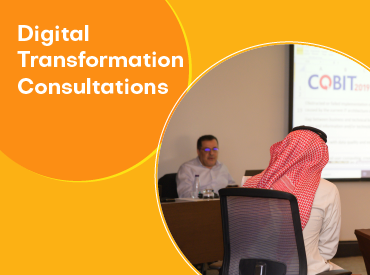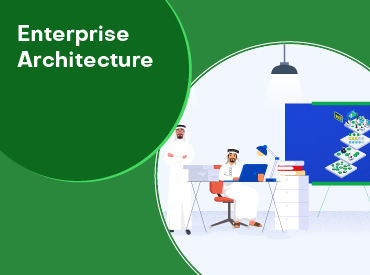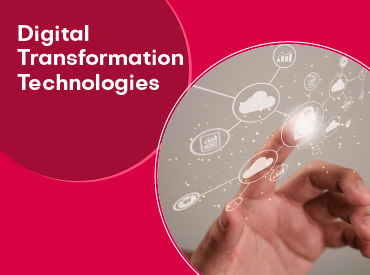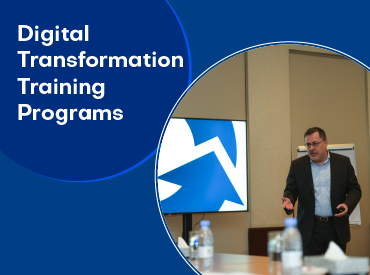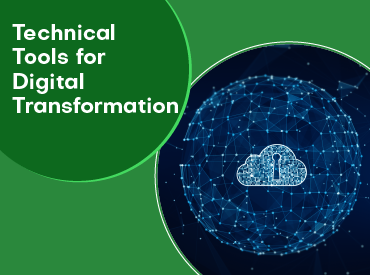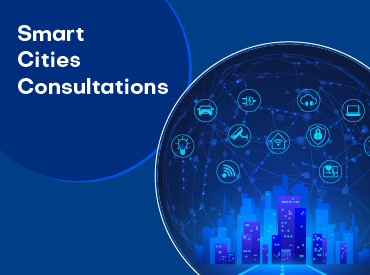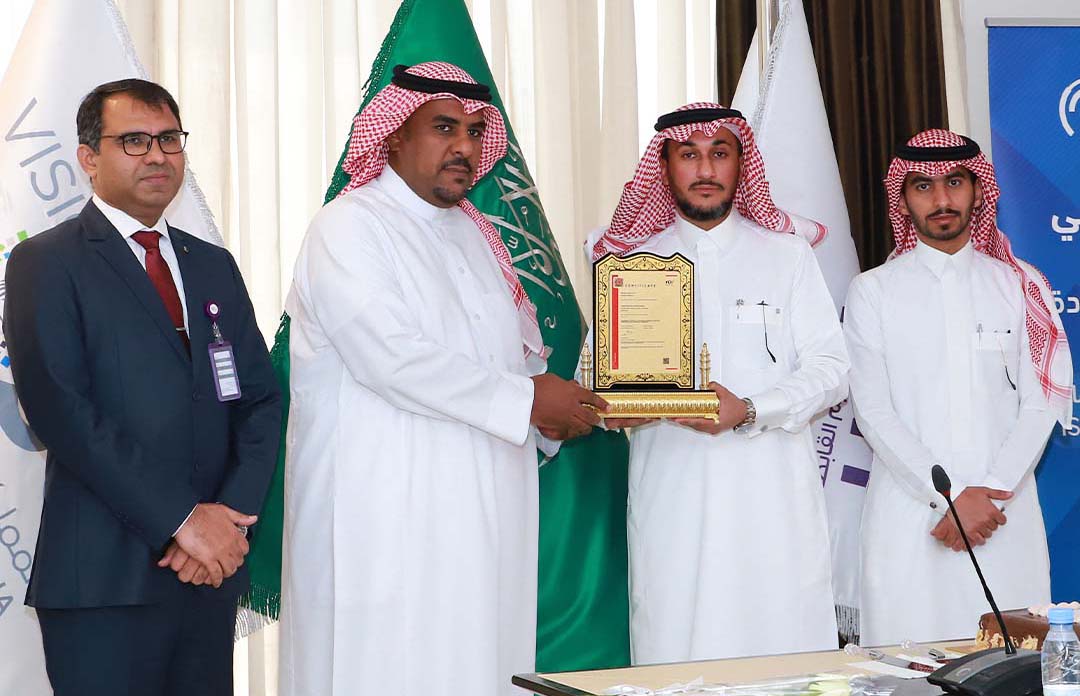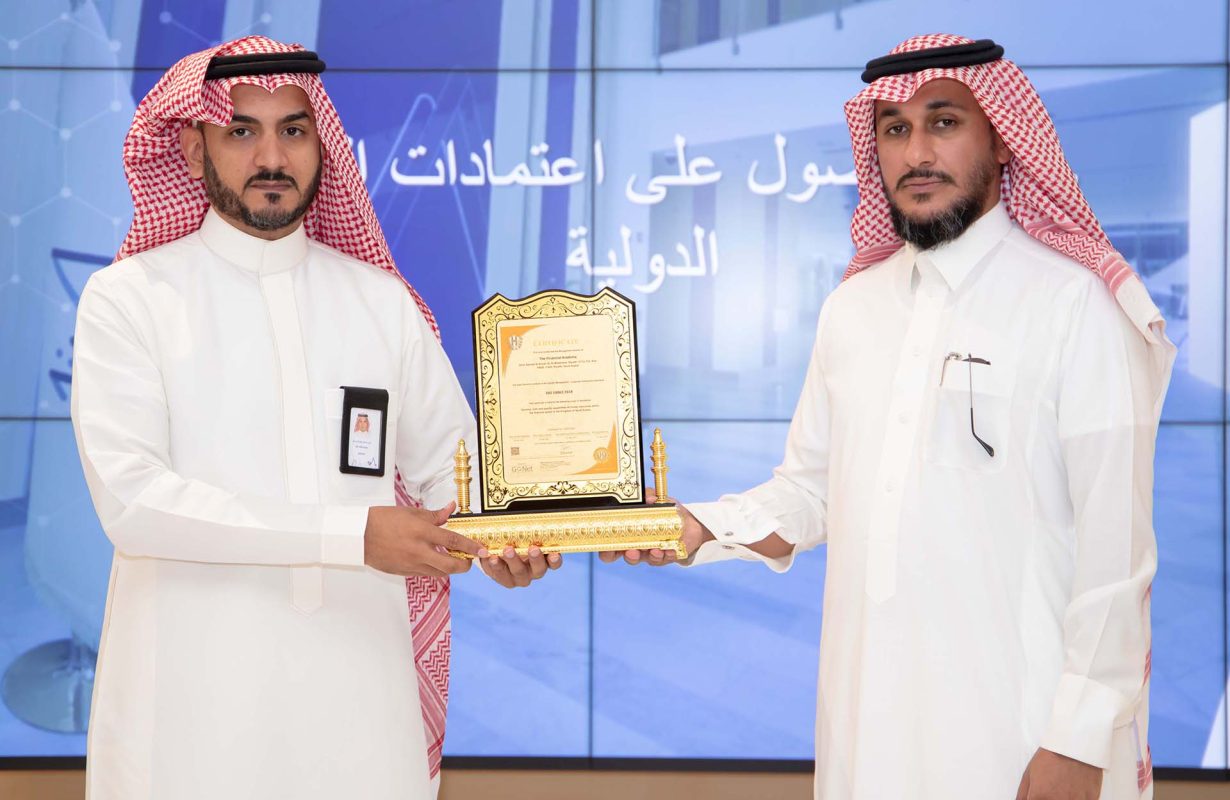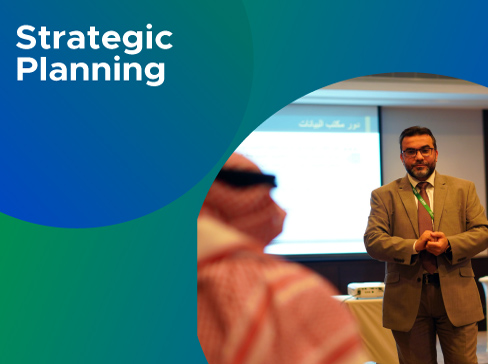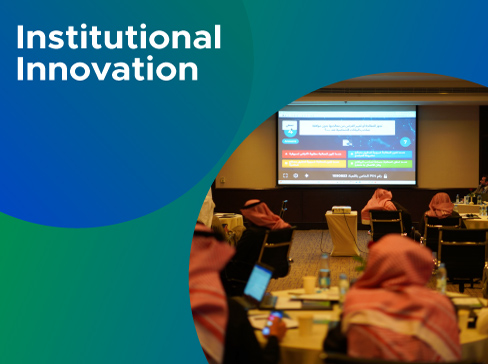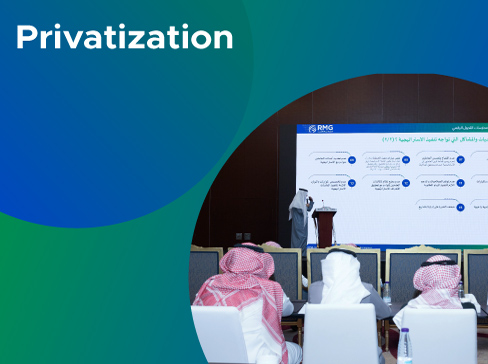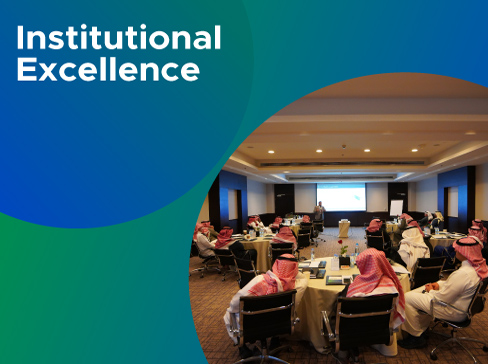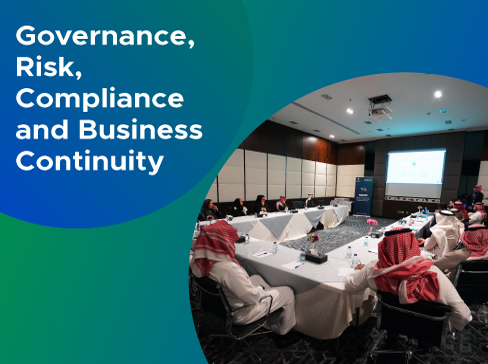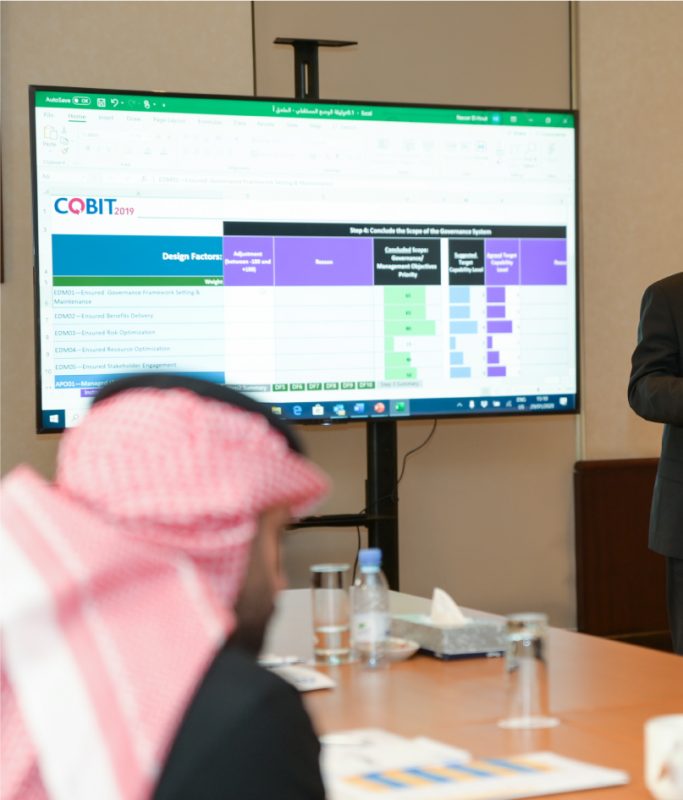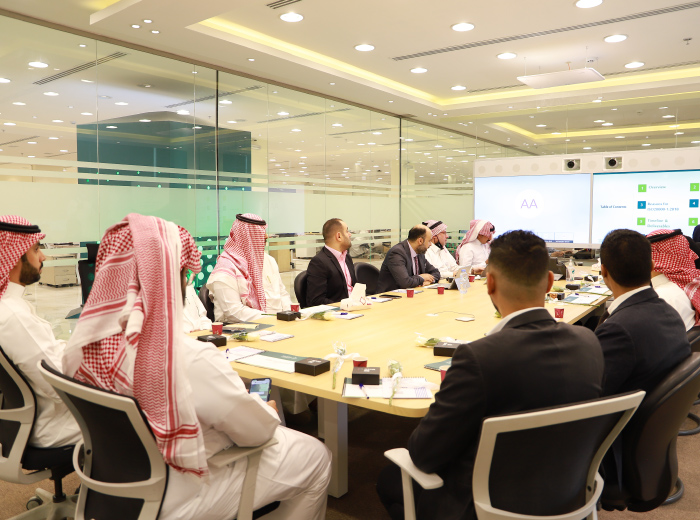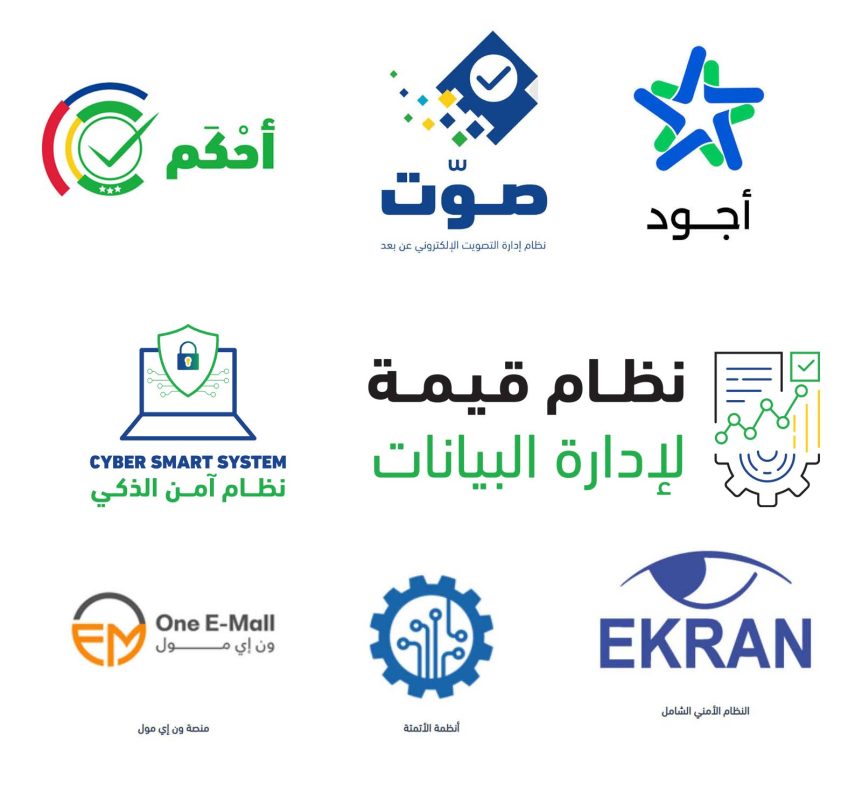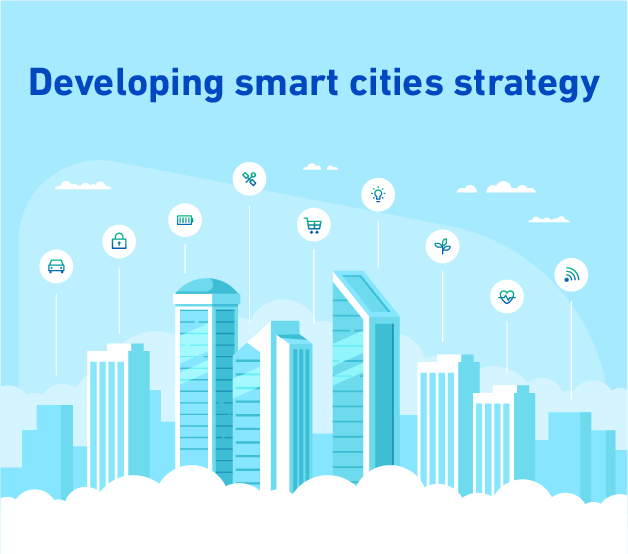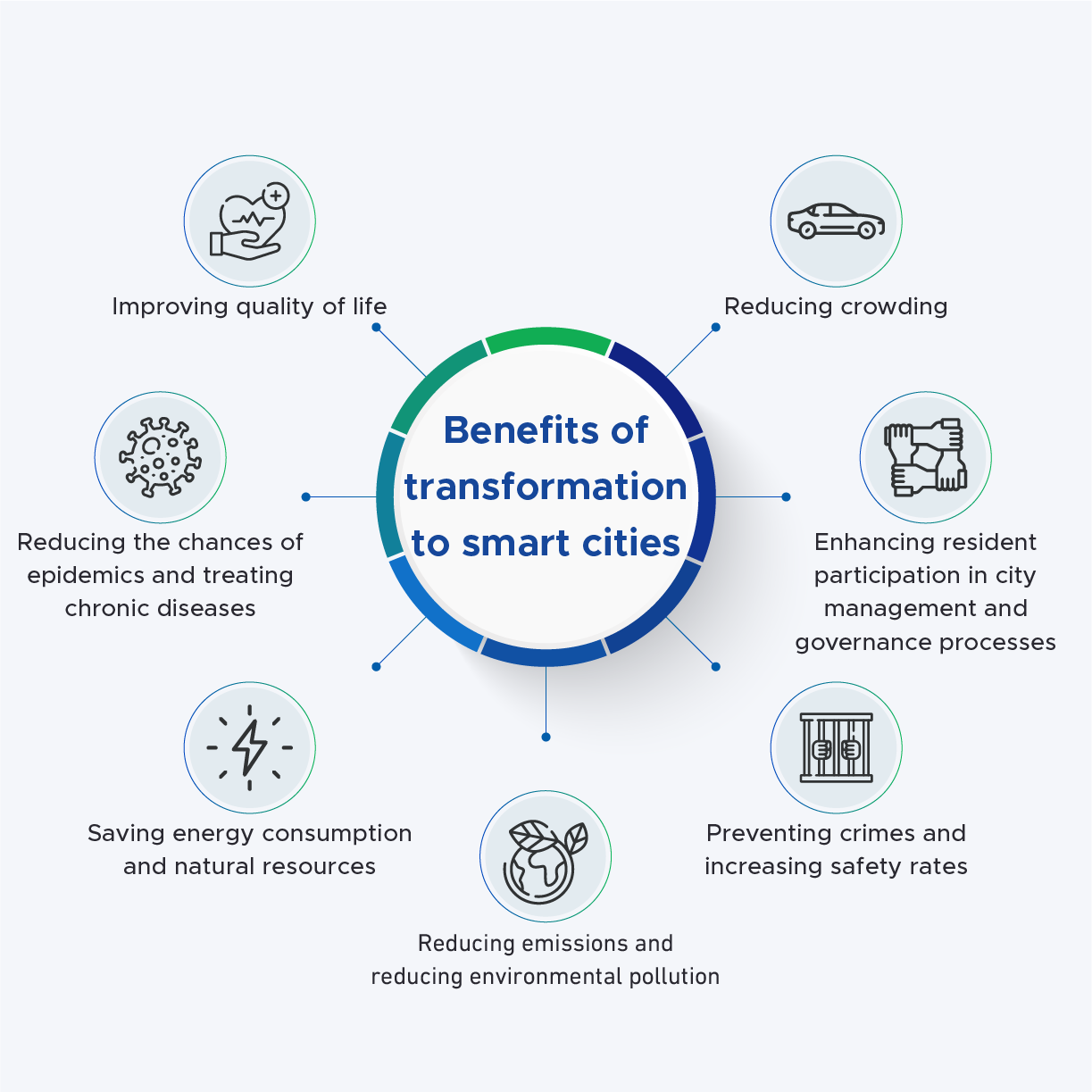Smart cities and developing their strategies
Smart cities and developing their strategies
Smart cities are the future of urban areas and embody technical development and innovation in our daily lives,
Today many countries are moving to improve the quality of life through the use of modern technologies and artificial intelligence and using them to change traditional cities and turn them into smart cities.
What are these cities?
The concept of smart cities
They are modern urban geographical areas that use different types of technical tools, electronic methods and sensors to collect specific data. The information gained from that data is used to efficiently manage assets, resources and services within that city; This data is also used to improve operations throughout other cities, including:
- Data collected from citizens, devices and buildings.
- Assets processed and analyzed to monitor and manage traffic and transportation systems, power plants, facilities, water supply and waste networks, crime detection and information systems, schools, libraries, hospitals and other community services.
What are smart cities?
These cities are defined as smart in terms of the ways their governments harness technologies in:
- Cities planning operations
- Operational processes
- Cities monitoring operations
- Cities data analysis operations
Many studies indicate that more than two-thirds of the world's population will be in smart cities by 2070 AD.
The basic goals and major objectives of smart cities
- Enhancing quality of life
- Achieving many major economic goals by creating thousands of new job opportunities in the knowledge economy.
- Achieving sustainability, as wise management of resources and regulation of consumption is considered one of the most important elements of the comprehensive vision of smart cities.
Want to know more details up close?
Do not lose sight of the compass. Contact us to request advice
What makes a city smart?
When we look to evolve or become a smart city, we need to not only address the current challenges the city faces, but also scale it to its fullest potential.
Smart cities have the ability to create safe and sustainable environments centered around the well-being of their residents. They can successfully achieve this by focusing on accessibility and transportation, improving healthcare and reducing waste to improve social and economic quality. The most important characteristics that make us say that the city has become smart are:
Smart life
Smart government
Smart society
Smart transportation
Smart economy
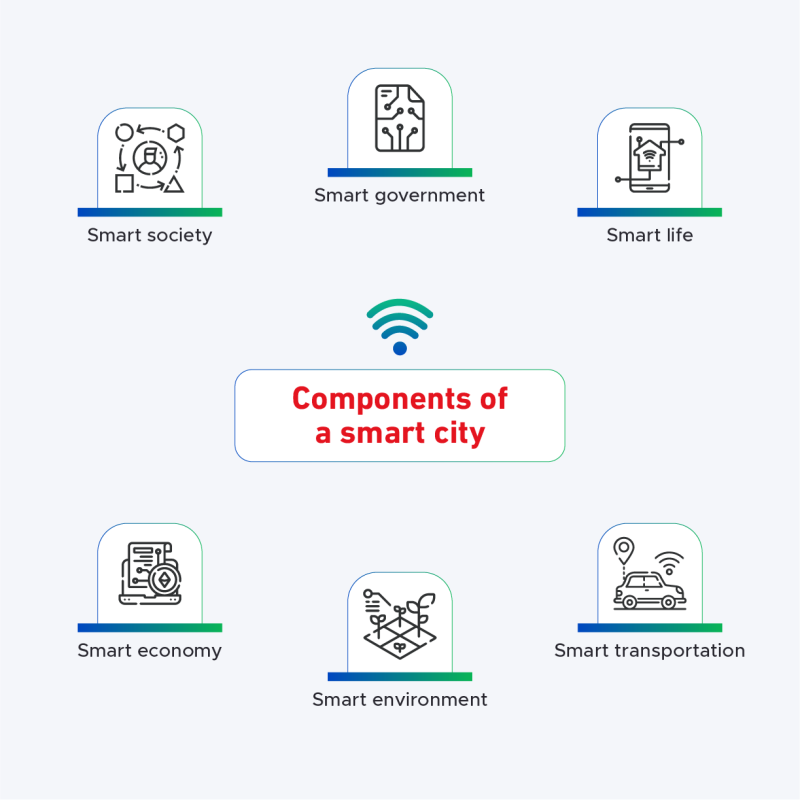
What are the benefits of switching to smart cities?
The benefits expected from switching to smart cities are numerous and can be summarized as follows:
- Significant savings in energy consumption and natural resources.
- Preventing crimes and increasing safety rates.
- Reducing the chances of epidemics spreading and treating chronic diseases.
- Reducing crowding.
- Reducing carbon emissions and thus reducing environmental pollution.
- Improving quality of life.
- Enhancing population participation in city management and governance processes.
Smart cities in numbers
The smart cities market is huge, as the market size is expected to reach 820 billion US dollars by 2025.
Recording a compound annual growth rate of 13.8%, it is also expected that the development of smart cities around the world will create business opportunities worth $2.46 trillion. and revenues of one billion US dollars by 2025.
Reducing crime rates by
Reducing the time of searching for parking
Reducing traffic accidents
Reducing carbon emissions
Let us take for example Barcelona’s smart experience, which achieved the following achievements within a short period:
Saving 30 percent of energy consumption, thus saving $37 million annually
Saving 25% in water consumption is equivalent to saving half a million dollars annually
The Smart Barcelona Initiative added 47,000 new job opportunities
The city received $50 million in income from the smart parking system
A permanent and free Internet connection, as the maximum distance between two Internet points does not exceed 100 meters
The role of Renad Al Majd Consultancy Company in the field of smart cities
Renad Al Majd Consultancy (RMG) provides a number of distinguished services such as:
- Developing smart cities strategy
Developing a smart city strategy involves many planning activities, evaluation, benchmarking, interaction with stakeholders, and the use of advanced technologies to create an efficient and sustainable city. Renad Al Majd for Information Technology (RMG) is developing the strategy through:
- Assess the current situation.
- Defining the vision, mission and strategic goals.
- Determine stakeholder targets.
- Identify priority areas.
- Take advantage of smart technologies.
- Develop a roadmap.
- Monitor and evaluate progress towards strategic goals.
- Develop frameworks tailored to each city.
- Providing design, comparison and operation services.
Evaluating and measuring the development of smart cities
There are many global indicators concerned with measuring and comparing the maturity of these cities in different sectors and domains, city leaders choose the appropriate standards and indicators to monitor the development of cities to make them smarter and more sustainable.
Among these indicators are:
- United Nations International Telecommunication Union (U4SSC) Index.
- ISO indicators for smart cities.
- Indicators that rank and compare cities with each other, such as the International Institute for Management Development (IMD) Smart Cities Index.
Want to know more details up close?
Do not lose sight of the compass. Contact us to request advice

